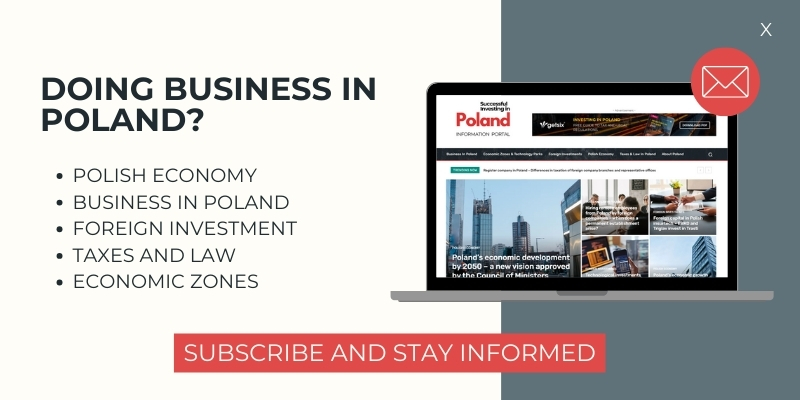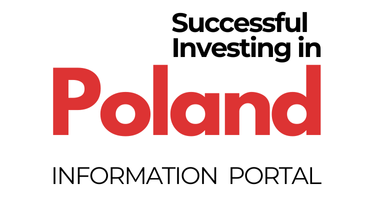German companies have been facing a labour shortage for years. Many sectors – from industry and construction to logistics and IT – are short of workers. Poland is becoming a natural destination for recruitment. For German entrepreneurs, hiring an employee from Poland is not only a way to fill staff shortages, but also to acquire well-trained, flexible and loyal workers.
Why is it worth hiring in Poland? What formal requirements must be met? What administrative procedures apply to employees? And finally, how can the most common mistakes be avoided? Below you will find a comprehensive step-by-step guide.
Why are German companies turning to Poland?
- Competences and qualifications
Poland has been ranking high in language competence rankings for years. Many employees are fluent in English and, increasingly, German. In sectors such as IT, engineering and logistics, Polish specialists are gaining recognition throughout Europe.
- Availability of employees
Although the labour market in Poland is becoming increasingly competitive, it is still possible to find qualified staff ready to work in Germany – both on a permanent basis and on short-term projects.
- Cost advantage
Labour costs in Poland are lower than in Germany. For entrepreneurs, this means the opportunity to build a more effective employment structure while maintaining high quality of work.
Employing a worker from Poland – two models of cooperation
1. Employment contract in Germany
The simplest solution. The employee signs a German employment contract and is subject to the full regulations of German labour law.
What this means for the employer:
- registering the employee for social security (DEÜV system),
- providing health insurance with one of the health insurance funds,
- paying remuneration in accordance with German minimum wage regulations and collective agreements,
- settling taxes in Germany – based on a tax number (Steuer-ID).
The advantage of this model is its simplicity and the absence of tax and legal uncertainties. It is an ideal solution for longer-term, permanent employment.
2. Secondment of an employee from Poland by a Polish company
The second common model is when a Polish company seconds its employee to work in Germany. In practice, this means that a German entrepreneur cooperates with a Polish entity (e.g. as a subcontractor), and the work is performed in Germany by persons employed in Poland.
In this case:
- the Polish company must obtain an A1 form for the employee, confirming that they remain in the Polish social security system,
- the Polish company must report the posting to the German system (Meldeportal Mindestlohn) before the start of work,
- German regulations on minimum working conditions and wages apply, which must also be observed in relation to posted workers.
For a German employer, this means that if they cooperate with a Polish company, it is worth verifying that all these requirements have been met. Failure to comply with the formalities may result in problems not only for the Polish employer, but also for the partner in Germany.
Tax and insurance aspects
- Taxes: As a rule, remuneration is taxed in the country where the work is actually performed. This means that if a Polish employee works in Germany, income tax on their remuneration must be paid in Germany. An exception applies if the employee stays in Germany for less than 183 days a year and the remuneration is paid by a Polish company – in this case, the tax may remain in Poland.
- Social security:
- with an employment contract in Germany – the employee is subject to the German system,
- when posted – it is possible to remain in the Polish system, provided that an A1 form is obtained.
Administrative procedures on the part of the employee
Every employee who moves to Germany must remember a few obligations:
- Registration (Anmeldung) – within 14 days of taking up residence, you must report to the local authority and register your address.
- Tax number (Steuer-ID) – assigned automatically after registration, necessary for payroll accounting.
- Health insurance – the employee must be registered with one of the health insurance funds, which is a condition for legal employment.
What to watch out for? The most common traps
- Confusing secondment with employee leasing – if, in practice, employees are loaned between companies, completely different regulations and penalties for violations apply.
- Failure to report posting – failure to comply with administrative obligations (e.g. reporting to Meldeportal Mindestlohn) may result in heavy financial penalties.
- Cross-border hybrid work – an increasingly popular model (e.g. some days in Poland, some in Germany) requires precise monitoring and division of working days for tax and insurance purposes.
Why is it worth using HR and legal consulting services?
The rules governing cross-border employment are complex. It is easy to make a mistake that will cost the company and the employee time and money. That is why it is worth using the support of HR and legal consultants who will:
- select the optimal employment model,
- prepare the required documents and notifications,
- indicate the most advantageous tax and insurance solutions,
- help avoid mistakes that could result in financial penalties.
/ / The process of employing or seconding an employee from Poland to Germany requires knowledge of numerous tax and insurance regulations. The getsix® team supports employers and management in the areas of HR and payroll administration, tax and social security consulting, as well as cross-border settlements. Thanks to our experience in working with Polish and foreign clients, we help you avoid mistakes and optimally organise your cooperation. Feel free to contact us – we will be happy to advise you and select the best solution for your company.
Employing a worker from Poland gives German companies access to qualified specialists who combine competence, flexibility and loyalty with competitive labour costs. Thanks to transparent regulations in the European Union and practical administrative procedures, this process can be carried out efficiently and safely. However, it is worth ensuring proper preparation and professional support – it is an investment that quickly pays for itself.





